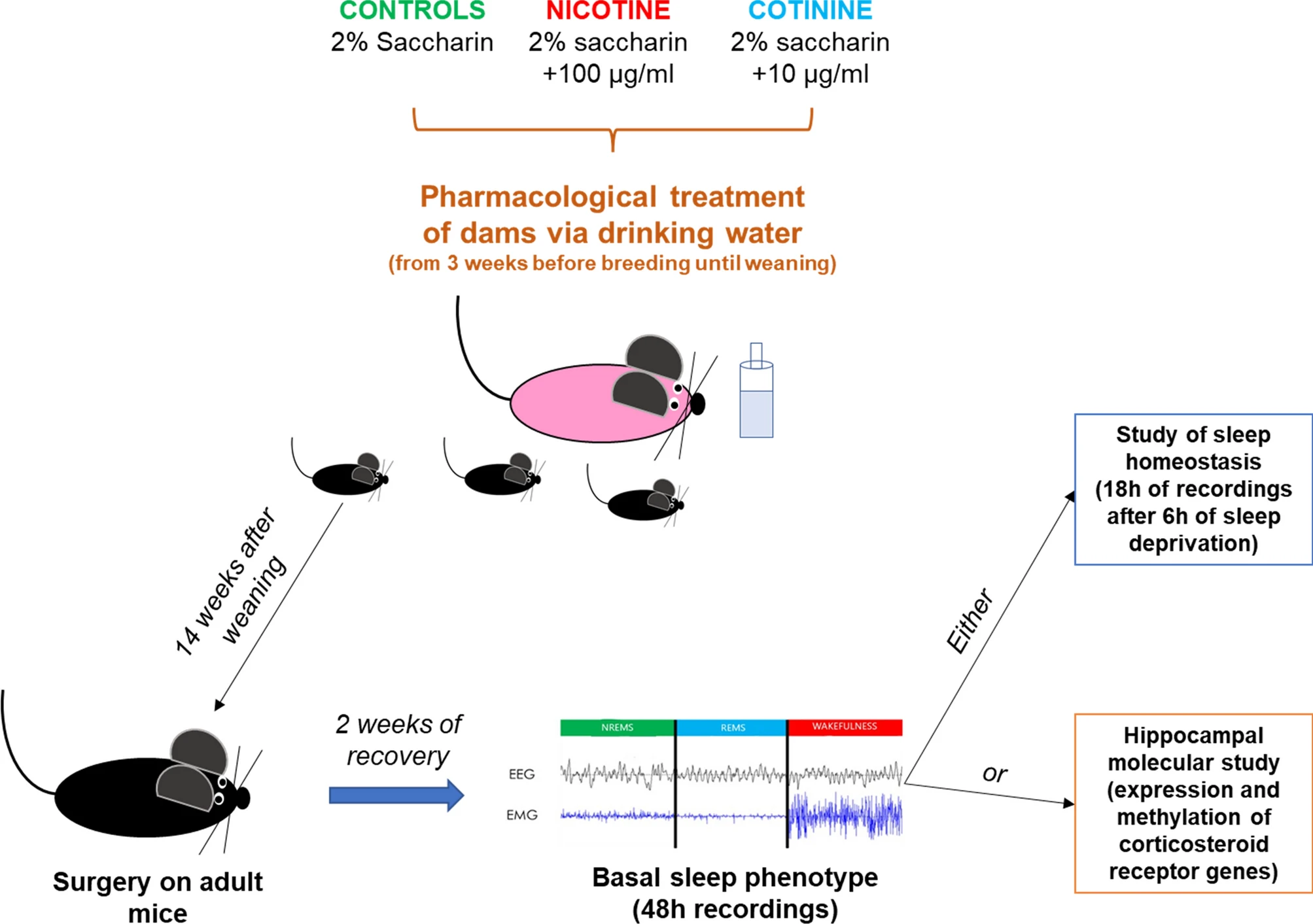

Researchers of the University of Bologna carried out a study on murine models (mice) demonstrating that pre-natal exposure to nicotine and its by-products produces long-term effects on sleep and stress-response in some areas of the brain. The study was published in Scientific Reports, a journal of the Nature group.
“The results of this study show how sleep in adults might be influcenced by events occurred in the early stages of life”, explains Giovanna Zoccoli who coordinated the research and is a professor at the Department of Biomedical and Neuromotor Sciences of the University of Bologna. “According to our data, control over environmental factors during pregnancy is fundamental not only for women’s health but also for the offspring’s”.
Researchers used mice for this study and analysed the effects on adults of perinatal exposure to nicotine and its by-products. By exposing pregnant mice to nicotine in the concentration of passive cigarette smoke, the researchers observed that their offspring, as adults, showed a significant reduction of sleep between the resting and the active phases, which in humans corresponds to the morning awakening.
At the cerebral level, these investigations also showed an alteration of the expression of the glucocorticoid receptors (the stress hormones) in the hippocampus. The hippocampal structure is the most sensitive to stress during brain development: it is indeed a very moldable structure that develops mainly after birth and has many corticosteroid receptors such as glucocorticoids.
This new study demonstrates that, on the one hand, exposure to nicotine and its by-products in the early stages of life alters the expression and the balance of corticosteroid receptors in the hippocampus, on the other hand it also shows that glucocorticoid expression in the hippocampus is linked to sleep reduction.
“Our data show that sleep alterations and downregulation of corticosteroids in the hippocampus co-occur”, adds Zoccoli. “These results then point at the fact that nicotine consumption during pregnancy represents a stress factor that has effects on the offspring’s hippocampal development and on their sleep patterns when they are adults”.
“Early-life nicotine or cotinine exposure produces long-lasting sleep alterations and downregulation of hippocampal corticosteroid receptors in adult mice” is the title of this study published in Scientific Reports. Stefano Bastianini, Viviana Lo Martire, Sara Alvente, Chiara Berteotti, Gabriele Matteoli, Alessandro Silvani and Giovanna Zoccoli participated in this research that was carried out at the PRISMLab of the Department of Biomedical and Neuromotor Studies of the University of Bologna. Laura Rullo, Serena Stamatakos, Sanzio Candeletti and Patrizia Romualdi from the Department of Pharmacy and Biotecnologies also participated on behalf of the University of Bologna.

